Now in its 10th year, this year’s Future Co-ops conference – ‘Post Carbon Co-ops’ – addressed life after oil.
Participants from various sectors of the co-operative movement met in Cheltenham to look at how co-operation and collaboration could help in the non-fossil fuel economy, which, delegates were told, inevitably has to follow our dependence on crude oil.
Speakers from the transition towns, co-operative and permaculture sectors all led discussions and explored examples of existing projects that are already addressing the need for a different way of doing business – a low or no carbon way.
A future of imagination
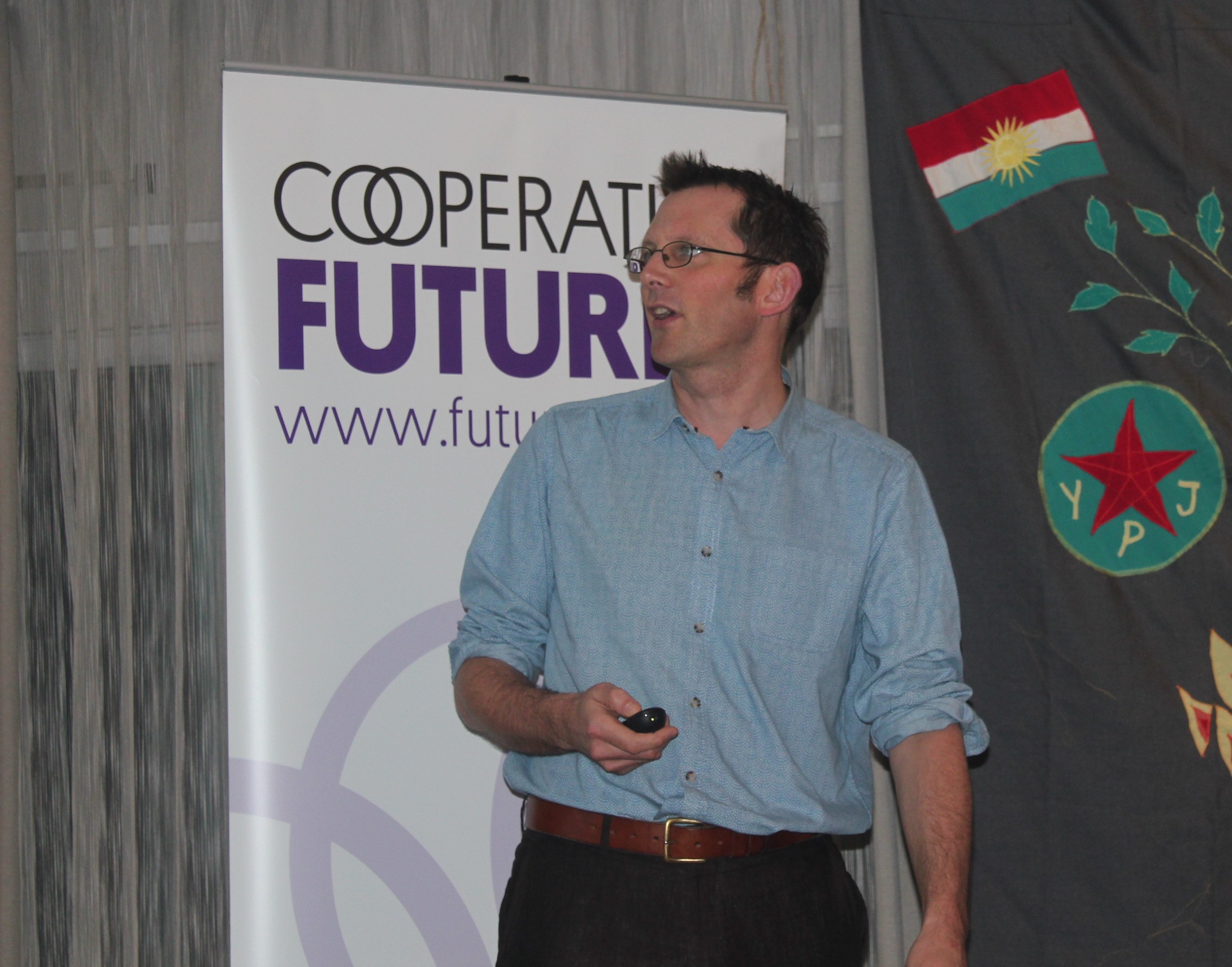
Rob Hopkins from the Transition Network, one of the keynote speakers, emphasised the need for more imagination in local decision making. He said the current ‘clone towns’ are a result of economic planners that seem to “have had an imagination bypass”. Transition towns, on the other hand, start from the point of looking at the history and successes of the town’s local economy and work from there to develop more resilient economies, many without the need for oil dependent energy.
Another of the keynote speakers was Mark Simmonds from Culture Co-op.
He set the scene for a post carbon world by explaining how humans’ attitude to their current dependence on oil and fossil fuels was akin to winning the lottery. “We need to see how lucky we are as humans,” he said. “Millions of years of sunlight are stored up in fossil fuels and it was like winning the lottery when we worked out to harness the power.” As it is slowly coming to an end, many people’s attitude to the looming shortages seems to be to try and win the lottery a second time with some magical new power source.
But, Mr Simmonds explained, as the chances of winning again are so remote, the challenge is to build resilient systems that can provide a way of life that has the smallest take from the environment as possible. Co-operatives in their various forms are in pole position to provide the answers to post carbon questions, but that can only happen if decision making faces this new reality.
Delegates heard that while innovation is discussed at length, it really needs to become mainstream for it to have the desired impact. “A serious need for a rethink in how we live is likely to be needed to seriously address the issues,” said Mr Simmonds.
He explored why there is such a dependency on fossil fuels. A gallon of petrol contains energy equivalent to 430 hours of hard human work; at a living wage, 430 hours would cost £3600. In comparison, a gallon of petrol is about £5 – meaning petrol is 700 times cheaper than using a person.
Post-carbon change
Post Carbon Co-ops addressed a number of key areas which are currently very carbon (crude oil) dependent and where change is bound to happen once oil becomes even more difficult and uneconomic to extract.
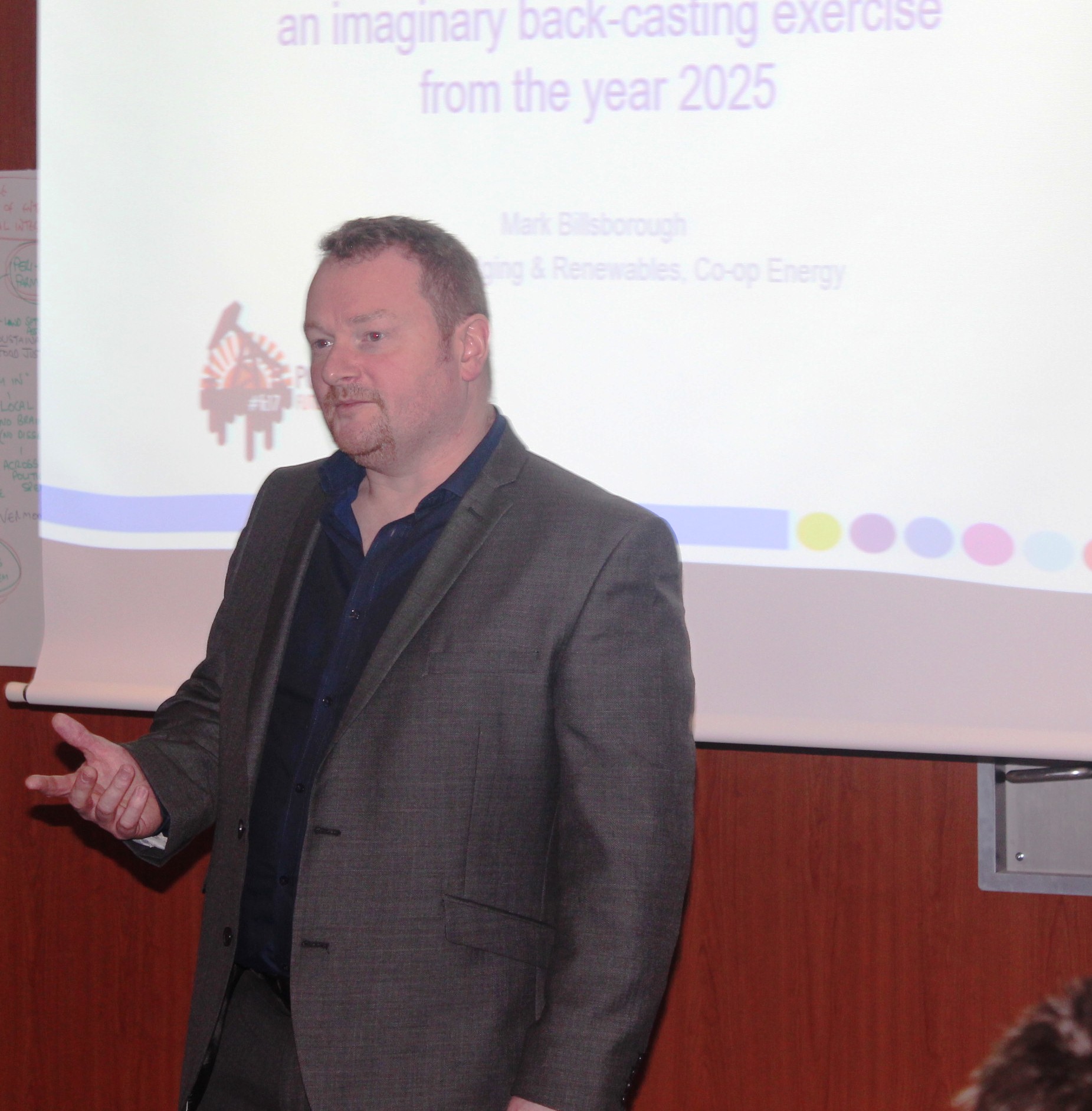
ENERGY: Mark Billsborough of Co-operative Energy forecast a situation where customers of Co-operative Energy were able to chose where their energy comes from and highlighted some innovative ways in using customers as a resource to smooth out the well know peaks and trough in energy demand.
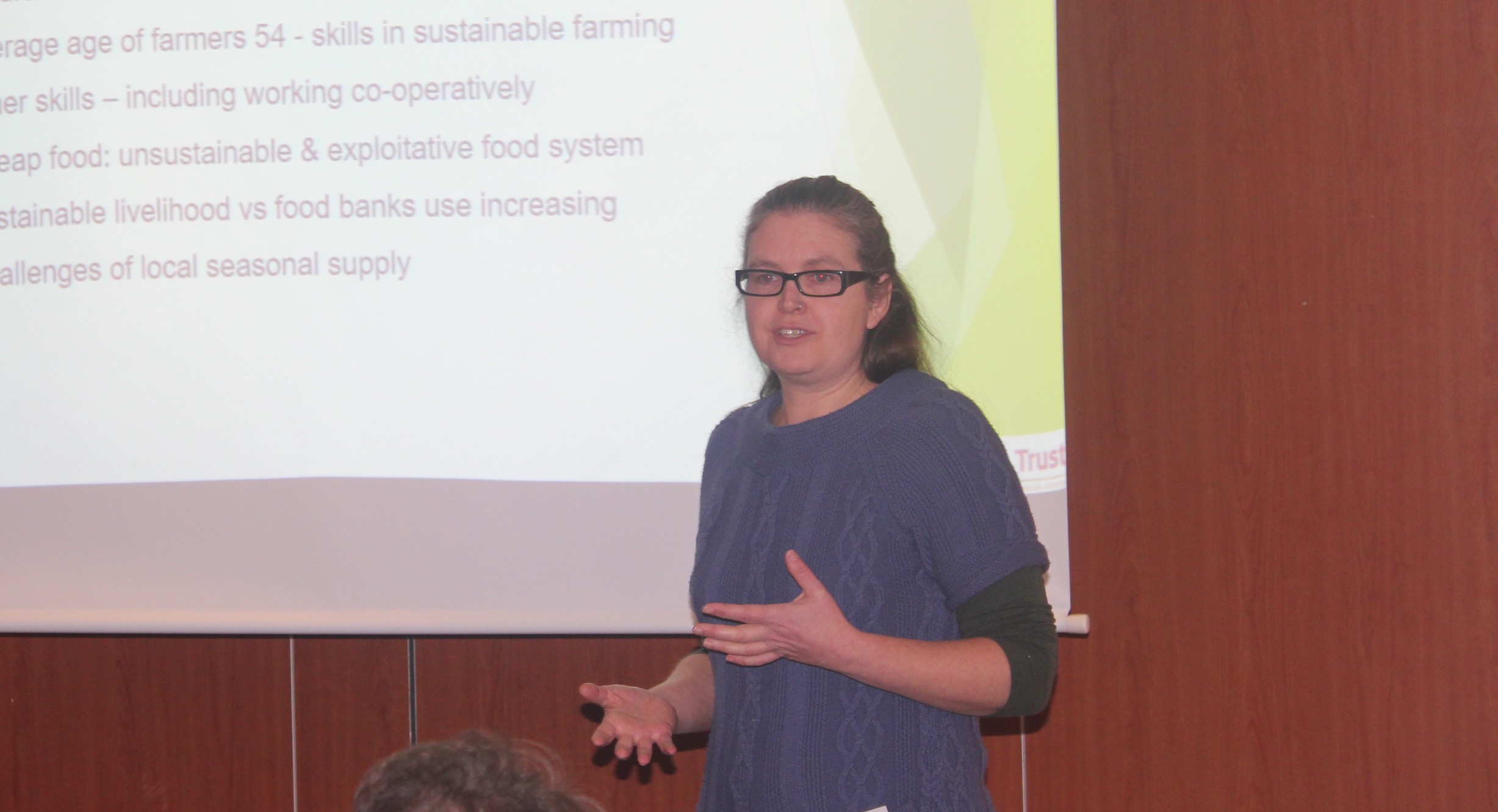
FOOD: Helen Woodcock from the Kindling Trust explained how for every 10 calories of food on the average plate, 7 calories of oil input are needed. “In a post carbon economy, food will have to become more local and less intensively produced,” she said. “Currently, it’s very hard to make money from food sustainably.”
The Kindling Trust is currently looking to buy a 200 acre farm within 50 miles of Manchester to set up sustainable production. As well as low carbon food, the farm would incorporate social housing, energy production and foster a reengagement between farmer and food.
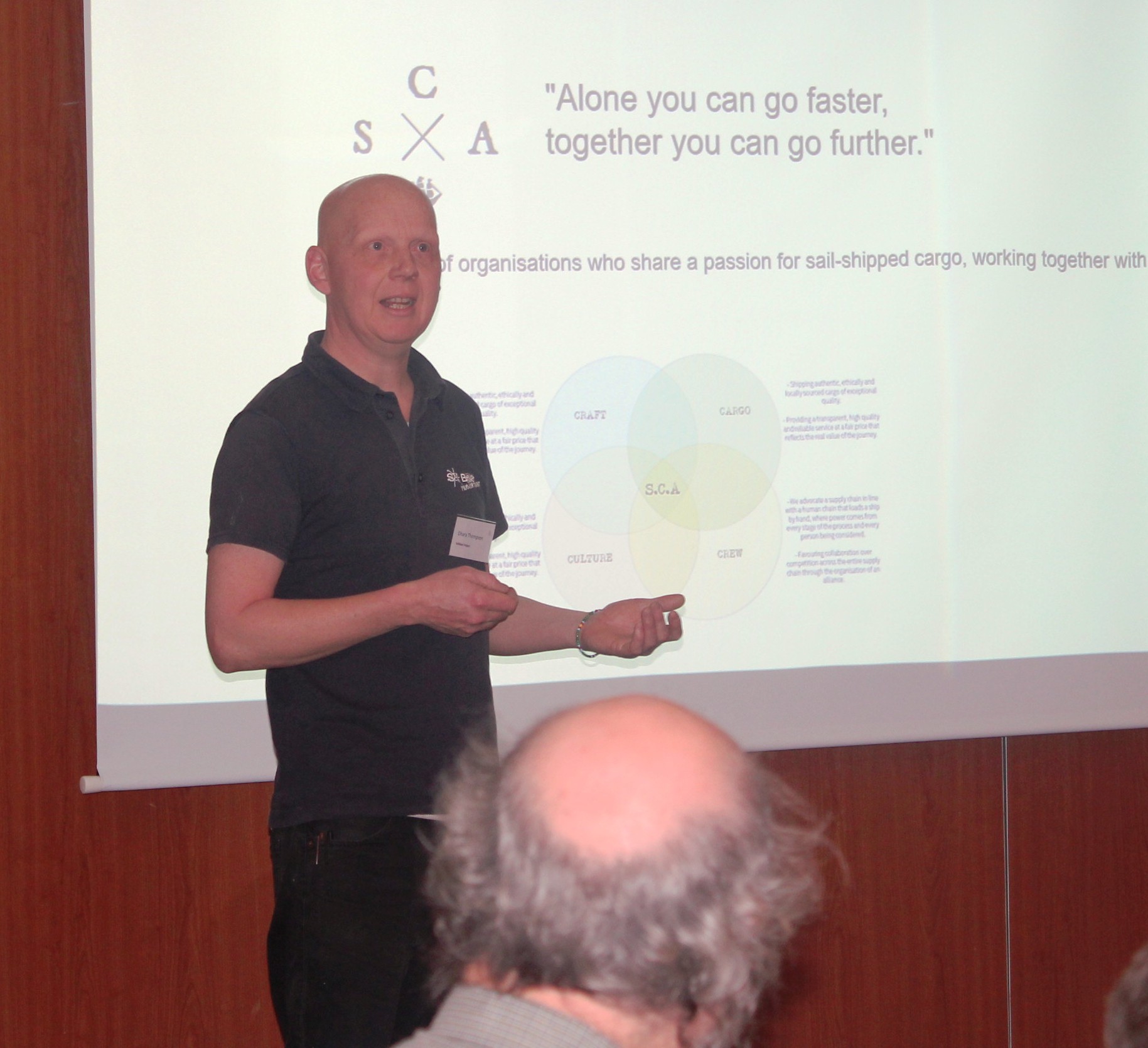
TRANSPORT: Currently, transport is almost wholly fossil fuel dependent, said Dhara Thompson of the Sail Boat Project. “In the case of shipping, huge volumes are transported around the globe each day by container ship. Before steam and oil-powered ships, sailing ships powered only by the wind and sailors carried huge tonnages across the world.”
The Sail Boat Project has a mission to bring communities together through sail cargo and is working with partners to reintroduce commercial cargo services powered by the wind. Post carbon travel and transport might be slower but has a much lower carbon footprint.
Along with a need to reduce the amount of carbon used in transport, there is also a need to create and transport less ‘stuff’. Mr Thompson gave the example of producing rubber ducks in a low labour price country, shipping them halfway round the earth for them to end up in landfill. “This is not sustainable and must decrease in a post carbon economy.”
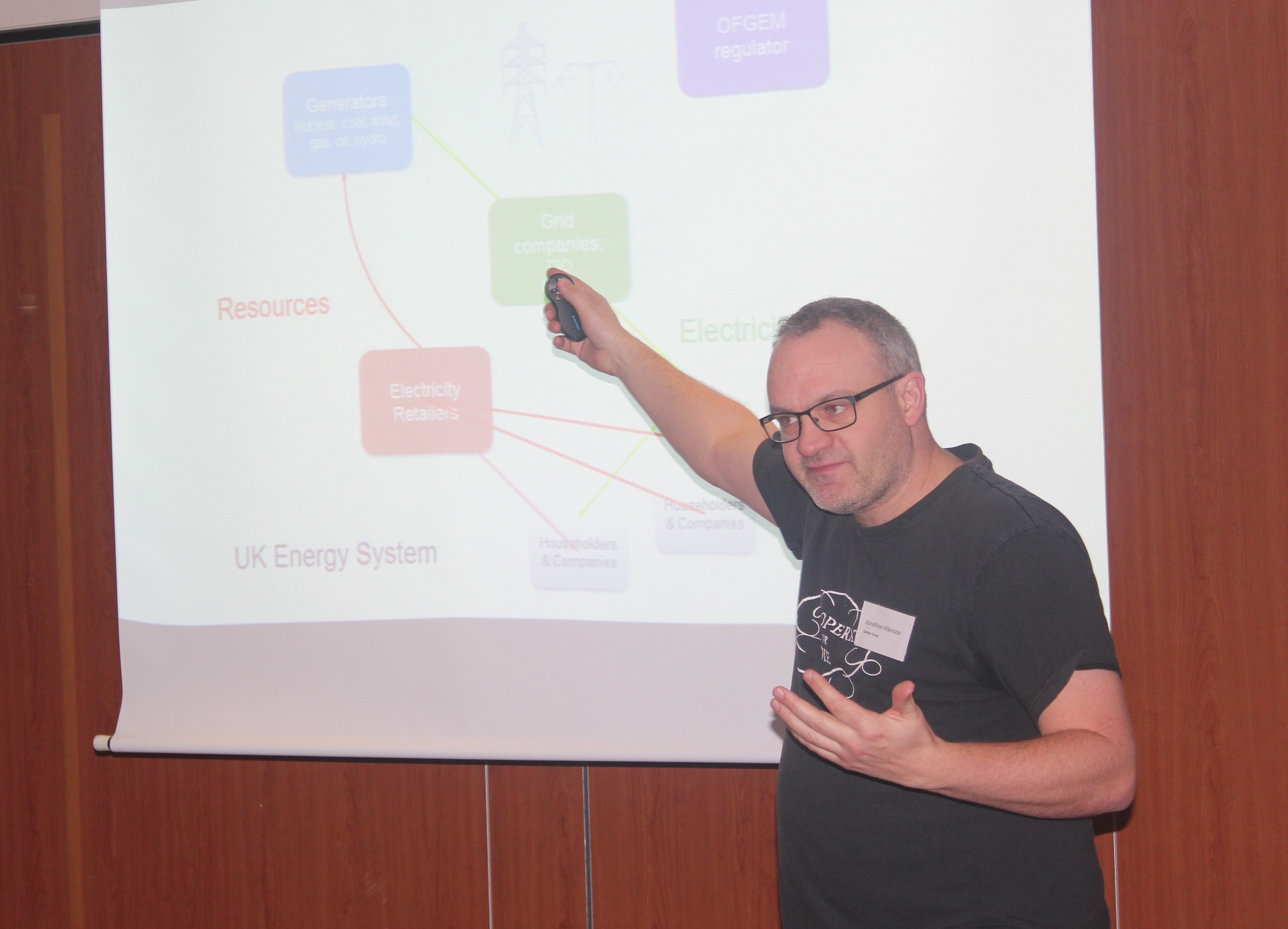
ENERGY: Private businesses are failing in the energy market, according to Jonathan Atkinson of Carbon Co-op. In a post carbon scenario, the focus is certainly going to be on carbon free energy generation, whether that’s wind, tidal or solar, but equally important is a real focus on using much less energy.
Long range transportation of electricity suffers from significant losses, he said, so co-operatives, municipalities and communities will need to move towards a more flexible, distributed renewable energy grid to meet their needs in the future.
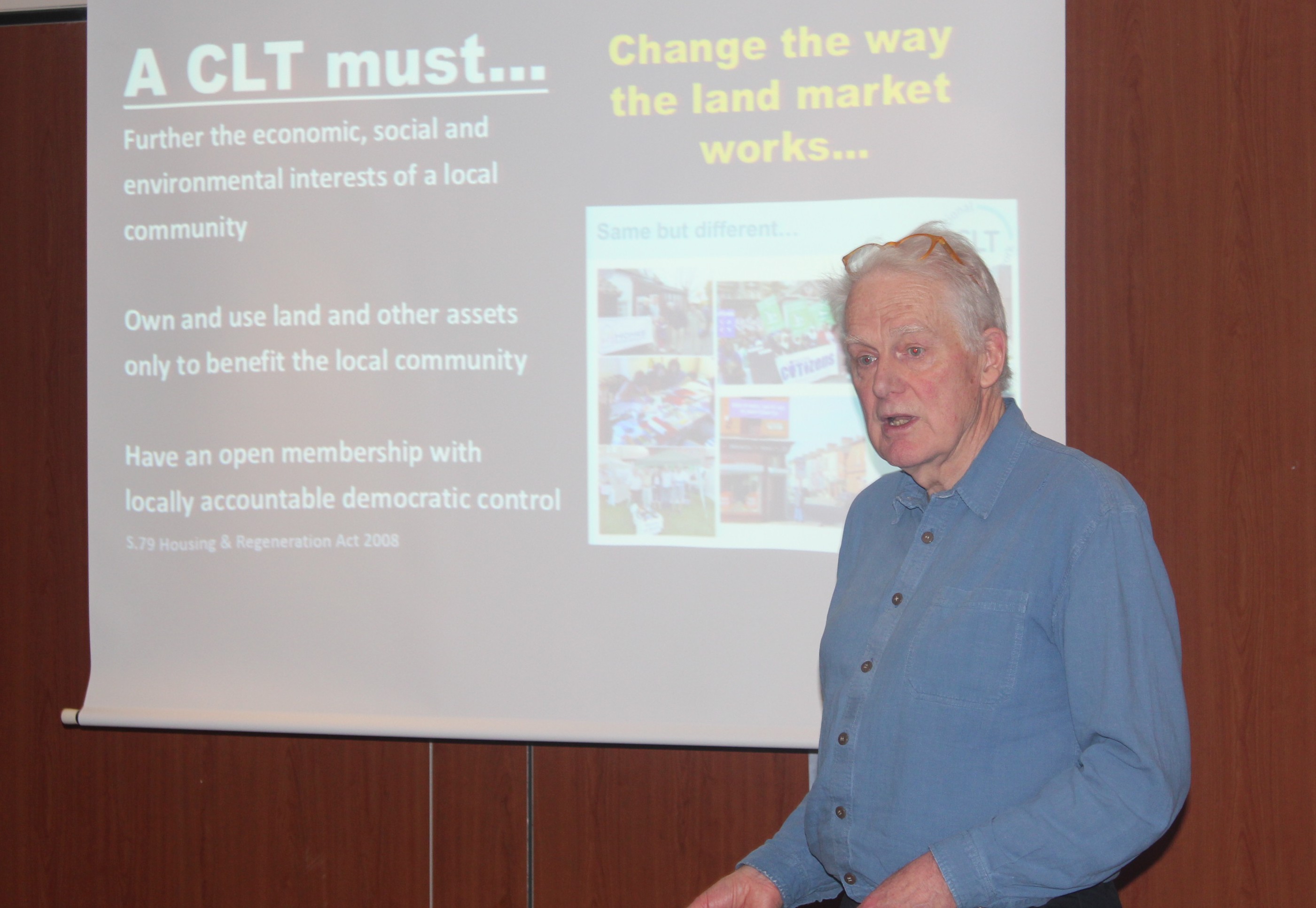
HOUSING: The National Community Land Trust Network‘s Stephen Hill explained how various forms of co-operative and co-housing offer more ecologically, economically and socially sound housing solutions.
“In a Post Carbon world resilient communities are likely to include greater numbers of shared housing where the carbon footprint and energy needs will be less,” he said.
- Post Carbon Co-ops was organised by Co-operative Futures, a business development consultancy specialising in co-operative, mutual and community led businesses.

